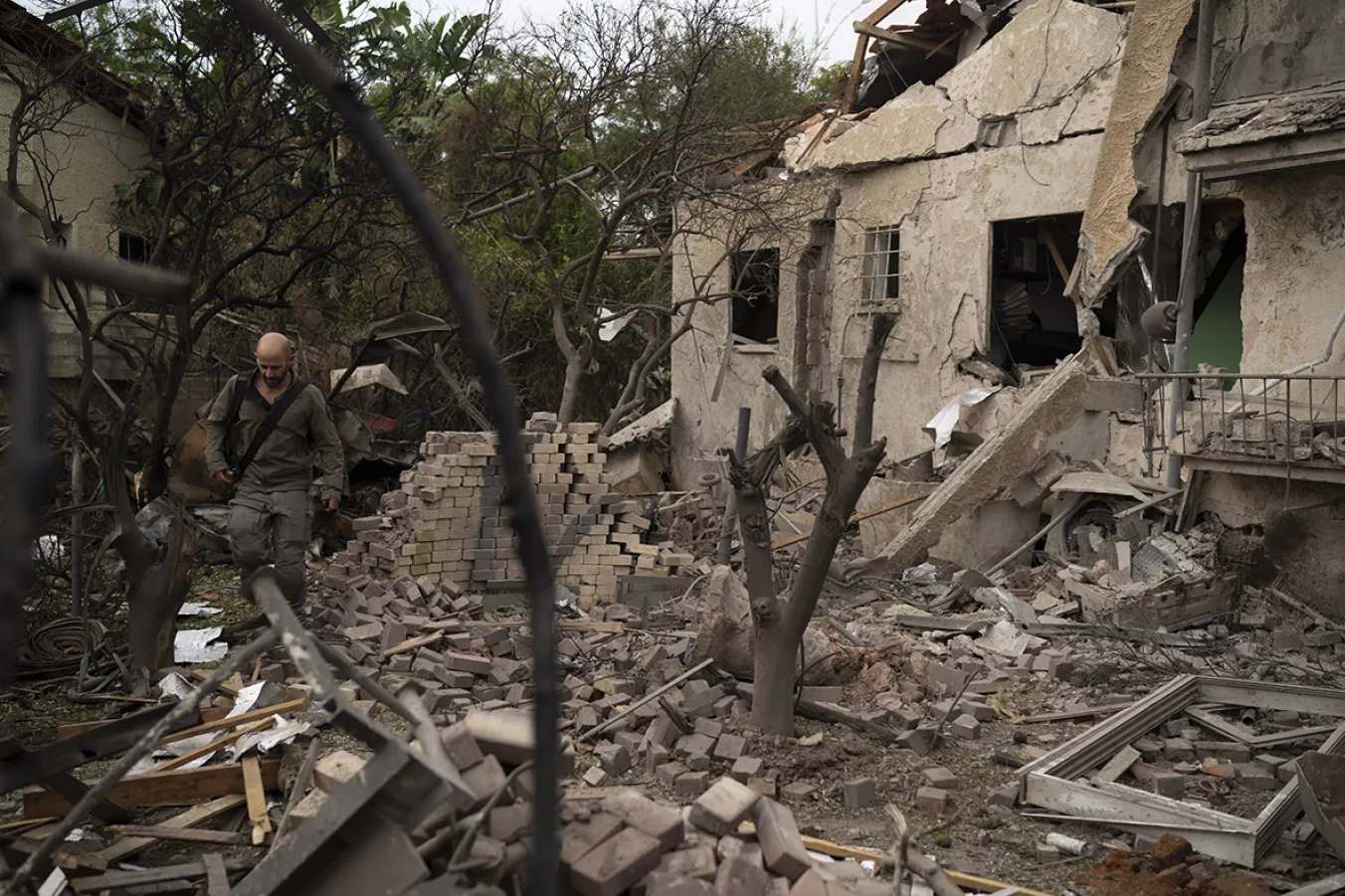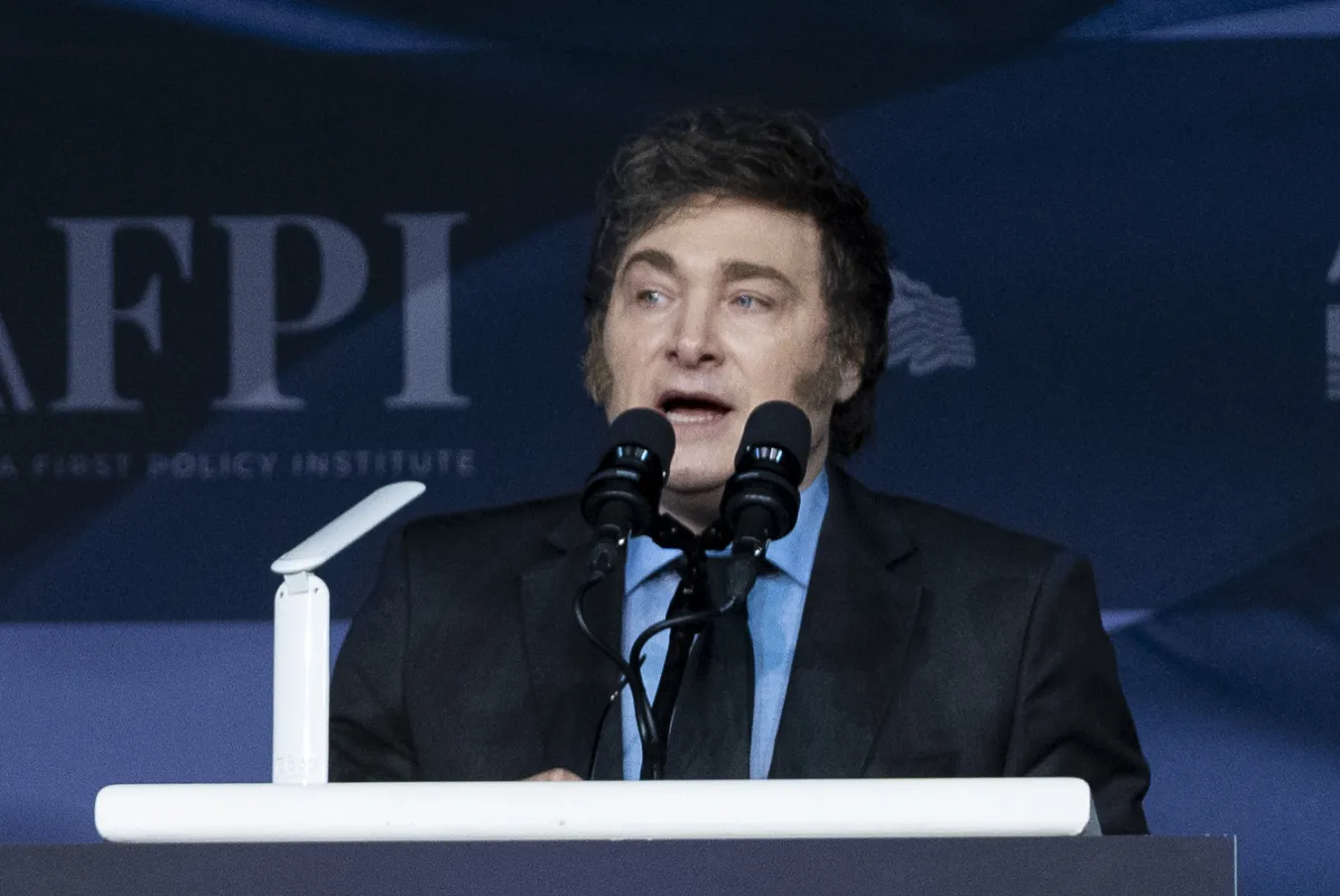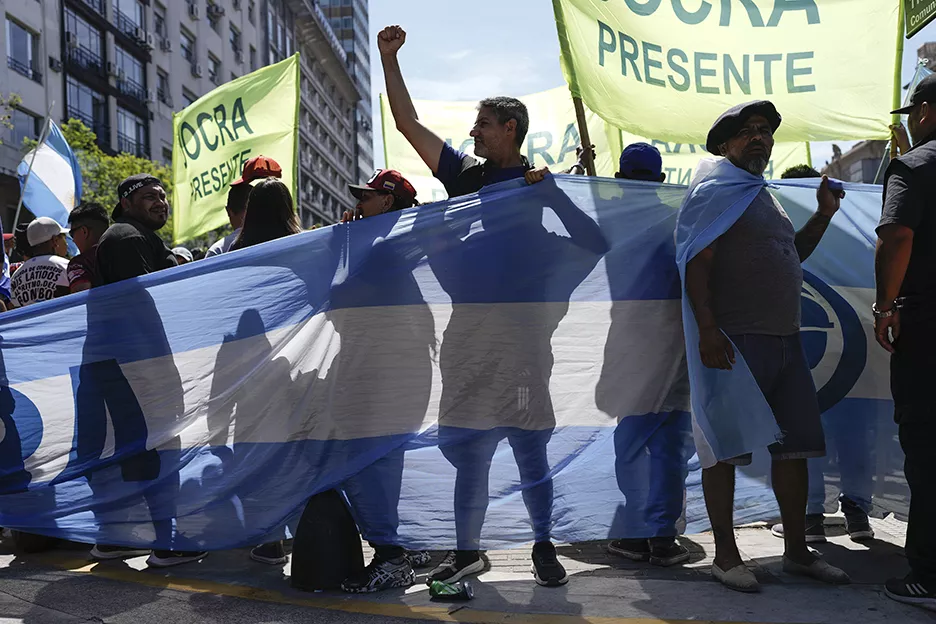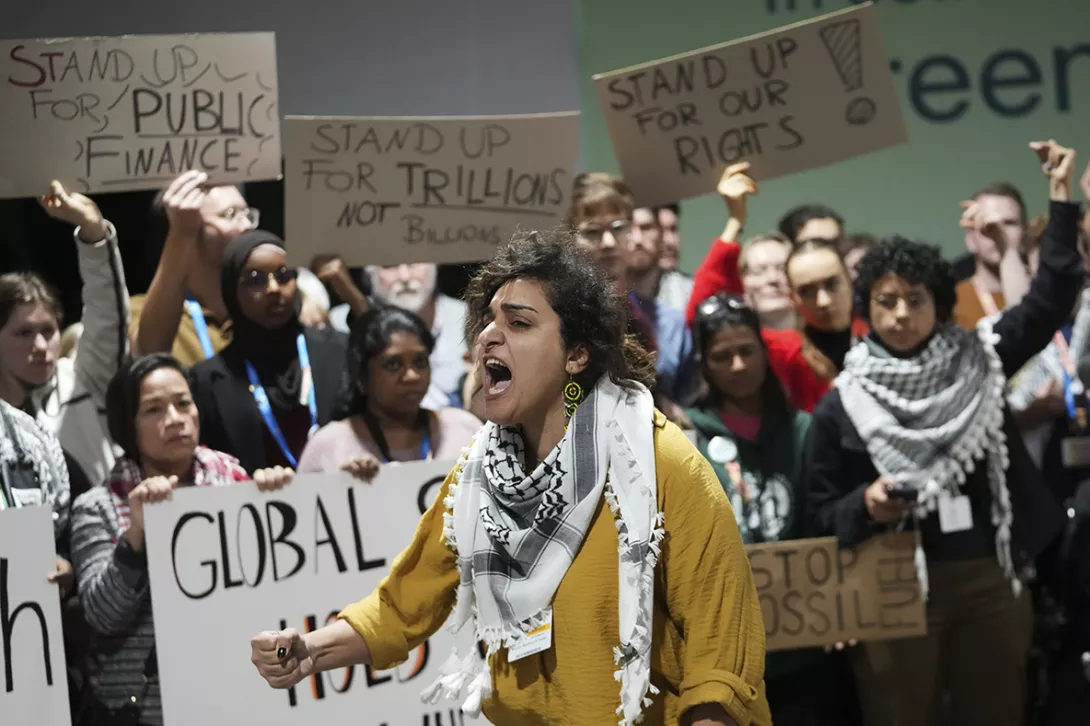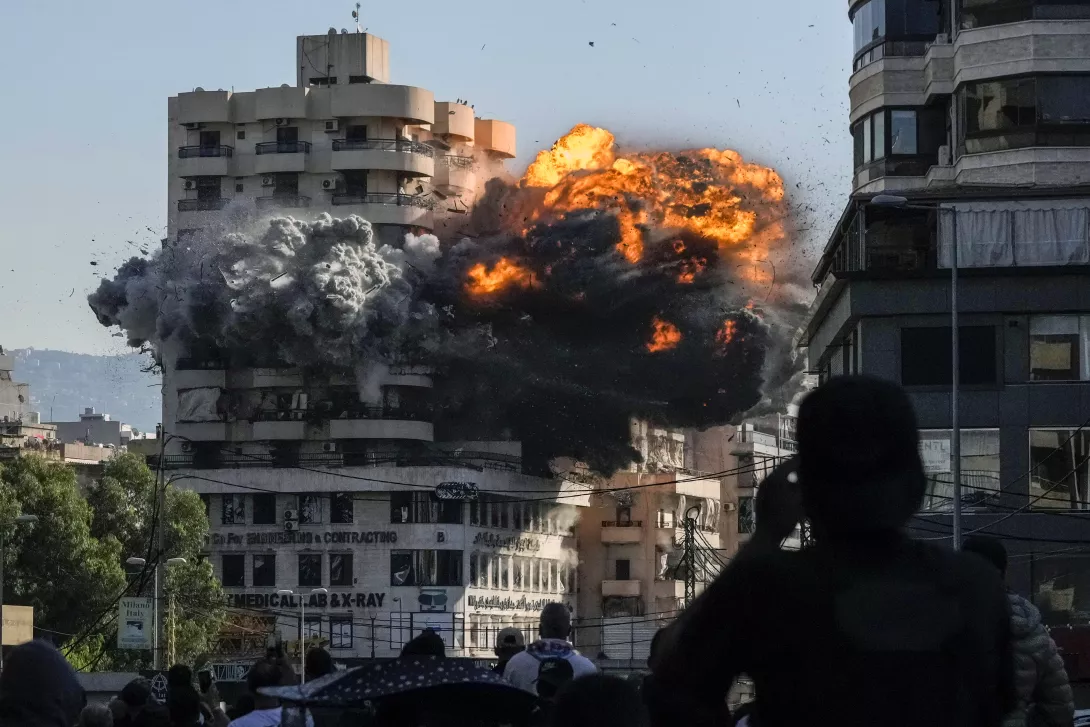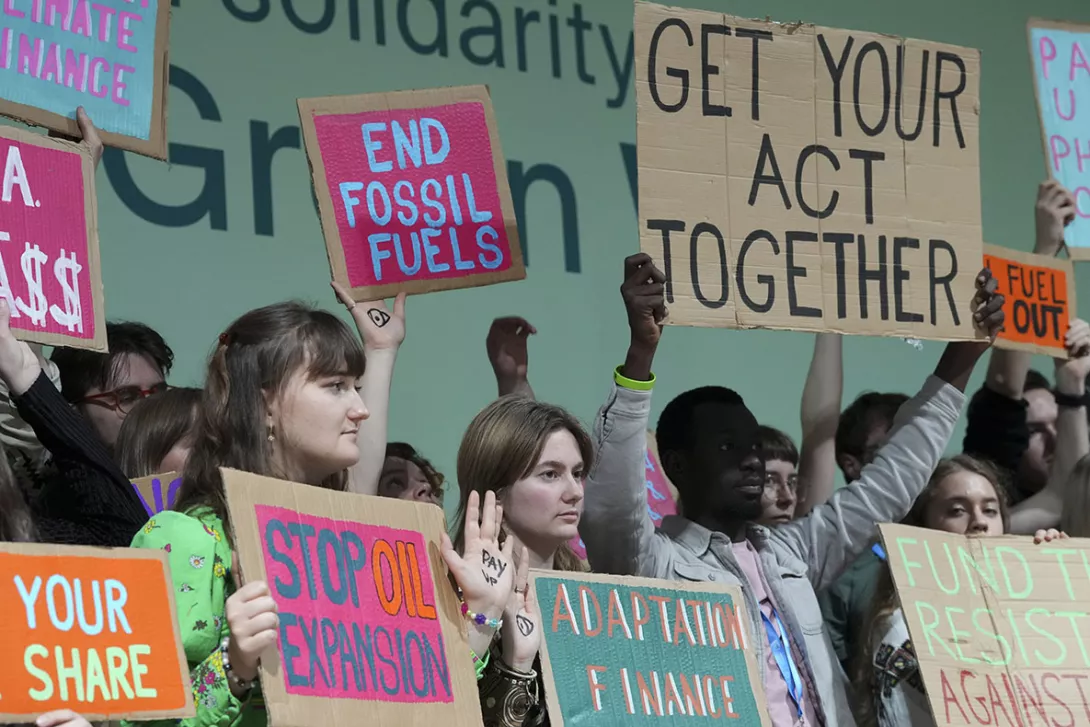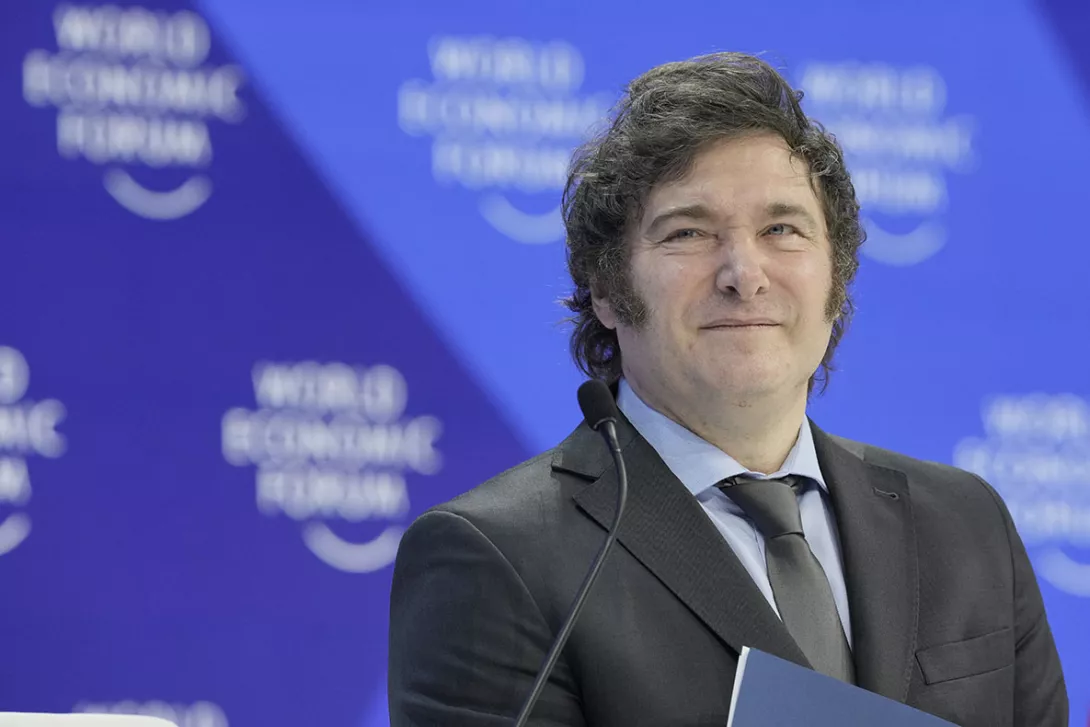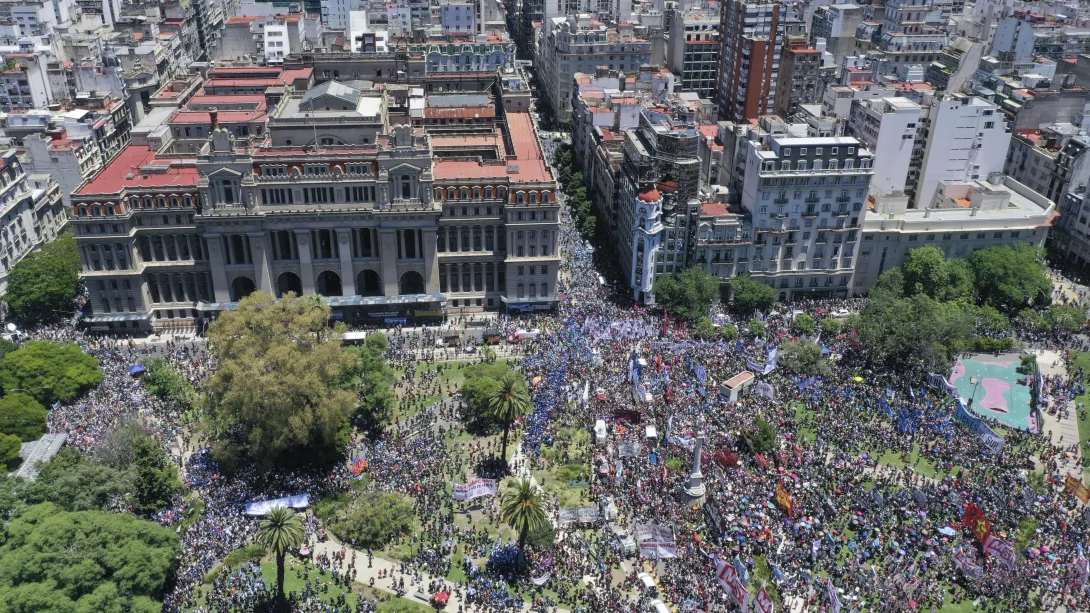
THOUSANDS took to the streets of Buenos Aires on Wednesday to oppose right-wing Argentinean President Javier Milei’s decree imposing sweeping deregulation and austerity measures.
The demonstrations organised by Argentina’s two main union federations, the CGT and CTA, called on courts to block measures removing labour protections.
But a judge rejected the appeal from the unions.
Unions question whether Mr Milei, a self-described anarcho-capitalist who has long railed against the country’s “political caste,” can impose the measures through an emergency decree bypassing the legislature.
Mr Milei’s extreme right-wing Freedom Advances party has 40 seats in the 257-member lower house of parliament and seven senators out of 72.
Unless both houses of Congress scrap the plan in its entirety, the decree will enter into force today.
Construction workers’ union leader Gerardo Martinez said: “We do not question the president’s legitimacy but we want a president who respects the division of powers, who understands that workers have the need to defend themselves individually and within the framework of justice when there is unconstitutionality.”
The CGT read a statement at the march saying Mr Milei’s decree “introduces a ferocious, regressive labour reform whose only purpose is to hamstring union activity, punish workers and benefit business interests.”
But some union members have been critical of the failure of the CGT to plan for a general strike, calling this week’s demonstrations “symbolic” and lacking a “fightback plan.”
Protesters also took issue with proposals to privatise state-run industries, chanting: “The country is not for sale!”
Since taking office on December 10, Mr Milei has devalued the country’s currency by 50 per cent and cut transport and energy subsidies.
He has said his government won’t renew the contracts of more than 5,000 recently hired state employees and proposed repealing or modifying about 300 laws.
Mr Milei says he wants to transform Argentina’s economy and reduce the size of its state to address rising poverty and inflation expected to reach 200 per cent by the end of the year.
The government had said it would allow demonstrations, but threatened to cut off public aid payments to anyone who blocked thoroughfares and barred marchers from carrying sticks, covering their faces or bringing children to protests.
